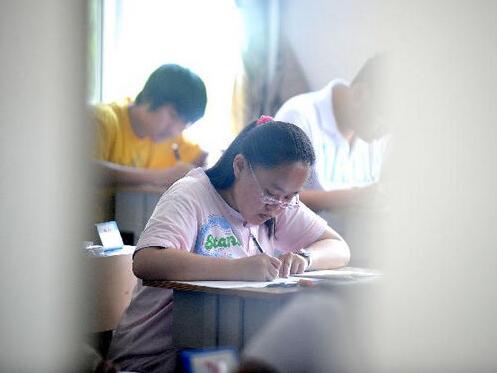Reform aims for dynamic college entrance exam
- By Zhang Liying
 0 Comment(s)
0 Comment(s) Print
Print E-mail China.org.cn, March 17, 2018
E-mail China.org.cn, March 17, 2018

Progress on reforming the national college entrance examination is on the right track, with successful pilots taking place in selected provinces and municipalities, Chen Baosheng, China's minister of education said on Friday.
The reform has introduced changes in the curriculum and evaluation system of senior secondary education, which is aimed at enhancing the all-round development of students, Chen said at a press conference on the sidelines of the 13th National People's Congress held in Beijing.
High schools in Shanghai municipality and Zhejiang province, the first two pilot regions, have given students more options, allowing them to choose subjects based on their preferences and to move between different classes, Chen said.
The evaluation system, in turn, has become dynamic, which means that it will change according to students' choices of subjects, he said.
Currently, Shanghai has designated more than 1,800 places for students to take part in social activities, and about 80 percent of high schools in the city have established innovation laboratories, Chen said, adding that these measures are conducive to students' well-rounded development.
He also pointed out the problems in pushing ahead with the reform, such as how to determine teachers' tasks and how to manage new types of classes, saying that the ministry is continuing to find solutions.
The reform was launched in 2014, with Shanghai and Zhejiang leading the way. Beijing, Tianjin, Shandong and Hainan were added to the list of pilot provincial regions in 2017, and another 17 provinces plan to carry out the reform this year, according to the minister.
Chen said in his opening remarks at the conference that the major two targets for the development of China's education are speeding up the modernization of education to develop education that people are satisfied with, and addressing the inequality in education to see that each and every child has fair access to good education.





